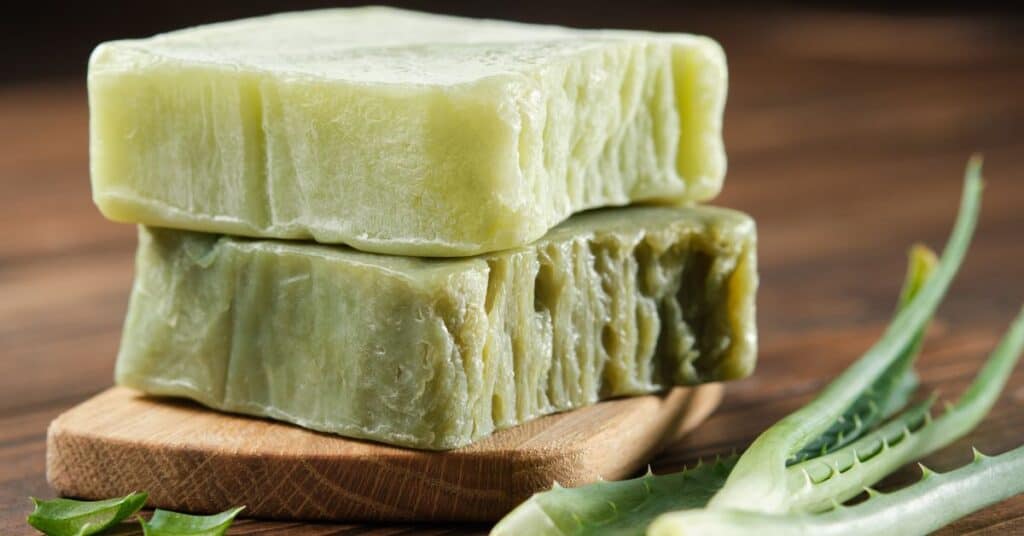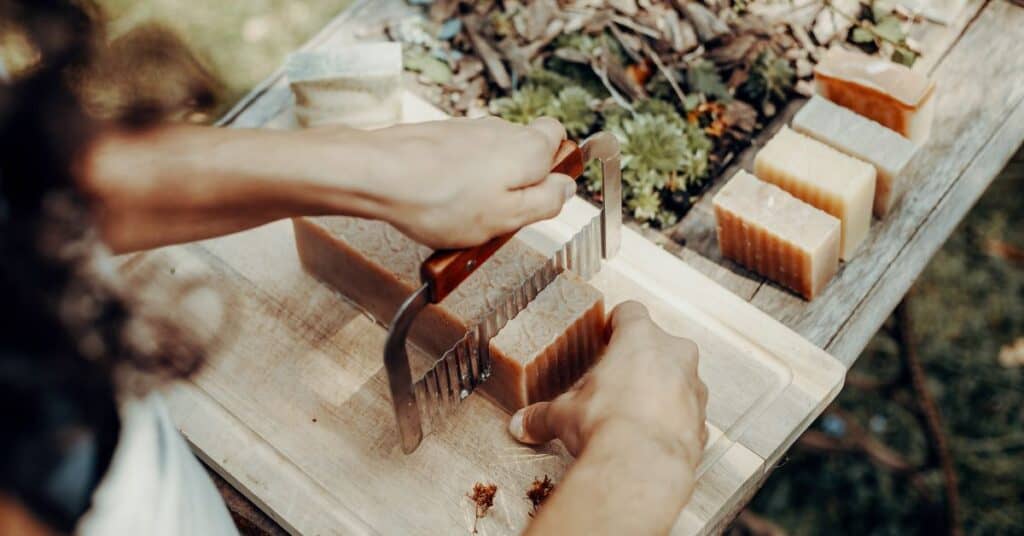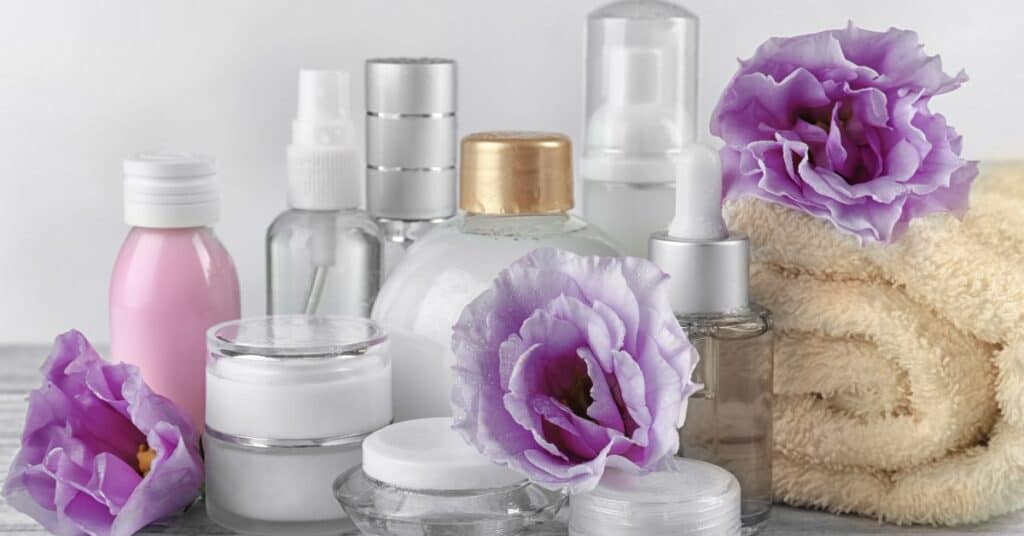Table of Contents
- Will Soapy Water Kill Plants
- What Is The Effect Of Dish Soap On Plants
- Can Plants Recover From Soap
- What Are The Insecticidal Soaps For Garden Or Plant Pest Control
- What Are The Tips And Precautions For Spraying Soapy Water On Plants
- Is There Any Benefit Of Soap To Our Plants
- Final Thought
Do you want to know if soap will hurt your plants? Anywhere gardeners assemble to chat about plants, there will be mention of soap, in my experience as a gardener.
Dish soap and water are frequently referred to as the holy grail of bug control, from aphids to Japanese beetles.
It is understanding how soap affects insects and how to apply soap effectively results in improved pest management and healthier plants.
High soap concentrations can burn plant leaves, especially if the plants are stressed, the temperature is over 90°F, and the humidity is high.
But that’s not all; as you continue, I’ll go over all there is to know about the effect of soap on plants, as well as how it’s done.
Now, let’s get started.
Will Soapy Water Kill Plants
Since at least 200 years ago, gardeners have sprayed plants with soapy water to kill insects. But that only sometimes implies that it is a wise decision.
To begin with, the term “soap” has many distinct meanings, and the soap products on the market now might be very different from those that were offered 50 or 100 years ago.
So the issue still stands: Will plants die in soapy water? Yes, if the wrong sort of soap is used or if the right soap is applied incorrectly or on the wrong kind of plant.
General-purpose detergents and commercial insecticidal soaps made expressly for plant application are two types of soaps used to control insects on plants.
If a soap solution is applied incorrectly, it can injure plants, and many homemade solutions containing household soaps and detergents can harm plants no matter how they are applied.
Because of this, it’s crucial to stay away from any soap that isn’t expressly designated for use on plants.
It’s also not worth mentioning that certain horticulture professionals suggest against spraying any form of soapy water on plants.
Commercial insecticidal soap is the safest option since it is designed to manage pests while causing minimal damage to plants when used as instructed.
These products are classified as organic pesticides, while most ordinary household soaps and detergents are not.
High amounts of soap can burn plant leaves, especially when sprayed on hot, humid days when the temperature surpasses 90 degrees Fahrenheit.
What Is The Effect Of Dish Soap On Plants
What results might be expected when dish soap that has been diluted is sprayed on plants?
It is essential to remember that dish soap is a form of detergent that effectively removes oil, grease, and paraffin.
When sprayed on plants, it removes the natural oils and lubricants that are present on all plant foliage.
This happens because plants produce their oils and waxes. The presence of these waxes and oils safeguards the leaves.
It’s easier for viruses to get into plants when the skin on the leaves is gone. It’s more likely that the plants will get sick because of this.
If you spray your plants with dish detergent, it will eliminate their natural defenses, making them more susceptible to illnesses and pests.
You are creating the ideal conditions for your plants to become ill and even perish as a result of your actions.
Can Plants Recover From Soap
True, but it also depends on the soap. A common recommendation for insect management is to spray a solution of Castile soap and water on aphids, mealybugs, and other similar insects to kill them.
What precisely is Castile soap? Sodium cocoate, sodium tallowate, and sodium palm kernelate are among the ingredients listed on a bar of soap that you may buy at the shop.
The terms indicate the types of fats utilized to manufacture the soap: locate, tallowate, and palm kernelate.
To make soap, you need a strong base, like sodium hydroxide or potassium hydroxide, and a fat product, such as beef tallow, coconut oil, or palm kernel oil.
The triglyceride, often known as fat, is broken by the base into three esters and a glycerin molecule.
Glycerin binds to the hydroxide component of the base to form a stable glycerin molecule, while the three esters attach to the sodium or potassium to form soap.
(When making commercial soap, glycerin is frequently removed in part for use in cosmetics or as a food ingredient, but some are kept since it helps skin maintain moisture.)
Although occasionally manufacturers may utilize a combination of olive and coconut oils and label themselves coconut Castile soap, castile soap is prepared using olive oil as the fat component of the soap.
In addition to being manufactured with olive oil, this soap is often intended to hold more glycerin than a conventional bar of dial soap.
For this reason, conventional bar soap or dish detergent may be detrimental to plants, although the soap solution of Castile soap and water normally is rather mild on plants.
Plants can be sprayed with soapy water to kill soft-bodied insects (although dish “soap” is actually a detergent, such as sodium laureth sulfate or sodium lauryl sulfate, which is not made in the same way as soap and has a distinct chemical function).
This is accomplished by rapidly dehydrating the bugs, which causes them to perish.
When sprayed with soap, insects generally flee the plant they are on since the sodium in the soap tends to have a mildly drying effect on them.
If they remain in touch with the soap as it dries, they will perish. Since the plant can retain more water than the insect’s body can, it doesn’t hurt the plant.
However, the plants are still dried out by the soap combination.
The additional glycerin that is normally found in Castile soap will tend to assist in retaining moisture in the plant, which is why using it makes this situation less awful.
What Are The Insecticidal Soaps For Garden Or Plant Pest Control
Insecticidal soaps may be a safe, effective, and low-toxicity alternative to more harmful pesticides for controlling numerous unpleasant insects in your garden.
When compared to other pesticides, insecticidal soaps offer several benefits.
They are cheap to use, among the safest pesticides, leave no unpleasant residue, are natural ingredients that are almost non-toxic to animals and birds and may be used on plants right up until harvest.
Furthermore, soap sprays do not kill most beneficial insects.
Some plants are extremely sensitive to soap sprays and may be severely harmed as a result.
Plants such as the Japanese maple (Acer palmatum), the bleeding heart (Lamprocapnos spectabilis), the horse chestnut (Aesculus hippocastanum), the mountain ash (Sorbus spp. ),
the portulaca (Portulaca grandiflora), the hawthorn (Crataegus spp.), and the cherries (Prunus spp.). If the wax coating on the leaves of a plant is washed off, the plant may lose its bluish hue.
Other plants that are rather delicate are azaleas (Rhododendron spp. ), begonias (Begonia spp. ), fuchsias (Fuchsia spp. ), geraniums (Pelargonium spp. ),
And impatiens (Impatiens spp. Spray clean water on plants if they begin to wilt or show signs of leaf edge browning within a few hours of treatment.
To evaluate plant sensitivity, spray a small area and wait 24 hours to observe if any harm develops. Do not spray plants that are showing signs of water stress.
What Are The Tips And Precautions For Spraying Soapy Water On Plants
Phytotoxicity hazards cannot be avoided, but they may be reduced to offer your plant a fighting chance. Here are a few ideas to get you started:
1. Research your unique plant to discover if it is susceptible to insecticides. Some plants are inherently more fragile than others and will most certainly perish if you spray them all at once.
2. Always test your soapy solution on a leaf to see how sensitive the plant is. This is an important precaution to take with any solution you spray on your plants.
After spot-spraying a leaf, wait two days before checking on it again.
• Spray the rest of the plant if there are no obvious problems.
• Adjust your solution and dilute it further if there is some harm.
3. Do not spray the soapy solution on your plant if the weather is very hot and humid. Your plant is stressed and withering as a result of the extreme heat at this time.
You run the danger of them being easily damaged. Furthermore, because of the heat, the solution evaporates nearly soon after application and does not adhere to the bugs as it should.
4. Use the soapy solution only in the early morning or late evening. This permits the mixture to remain moist longer, allowing it to work its magic on the pests and destroy them.
It also helps you avoid mistakenly killing any helpful insects because they are rarely present at this time of day, particularly in the morning.
5. Spray your plants with water the next day to remove the soapy solution. This not only removes any dead bugs but it also washes away any soap residue on the plant.
6. Whenever feasible, use alcohol swabs and bursts of water to get rid of bugs before considering DIY or commercial insecticidal soaps.
Unless your plant is highly infected, avoid grabbing the soap right away to get rid of them. You want to avoid causing extra stress to the plant, so try all of the other options first.
If you don’t have any other options and the pests are out of control, use the lethal spray. This page has further information on dealing with pests in your plants.
Is There Any Benefit Of Soap To Our Plants
Yes. Irish Spring soap may be used in the garden for a variety of uses other than pest control.
Here are some creative ways to use soap in your garden.
Tired of having dirt under your fingernails?
One of the more inventive ways we’ve seen Irish Spring soap used in the garden is to keep soil from being stuck behind the fingernails.
Run your fingernails along a bar of Irish Soap to coat your nails with the soap. This will keep dirt and loose soil from getting between your nails while gardening.
That’s all well and good, but now I have soap under my nails, so what’s the difference?
Soap is much simpler to get out from beneath your nails than dirt. All you have to do is run your fingers under warm water to dissolve the soap.
Soil, on the other hand, will remain trapped under your nails until you dig it out with tweezers or a toothpick.
Clean the Leaves of Your Indoor and Outdoor Plants:
Do you ever experience hard water streaks on the leaves of your plants?
Not only is it ugly, but leaving calcium buildup on the leaves might impair your plant’s capacity to photosynthesize.
This will have long-term negative consequences, weakening and stunting the growth of your plants.
Fortunately, Irish Spring soap can assist you with this difficulty. Dilute some Irish Spring soap with distilled water to get a mild soapy combination.
Fill a spray bottle with it and sprinkle the leaves of your plants.
Wipe the leaves down and dry them with an absorbent material such as a kitchen paper towel or a muslin cloth.
Final Thought
Now that we have established that soap hurts plants, While spraying plants with soapy water is only sometimes a good idea, there are alternative applications for soapy water as an insecticide in the garden.
For instance, you may hand-pick bugs from your beloved roses or priceless tomato plants and eradicate them with a bucket of soapy water.
For bigger insects like Japanese beetles or cabbage worms, this technique is highly successful. The soap causes the water’s surface tension to break, which sinks and drowns the insects.



